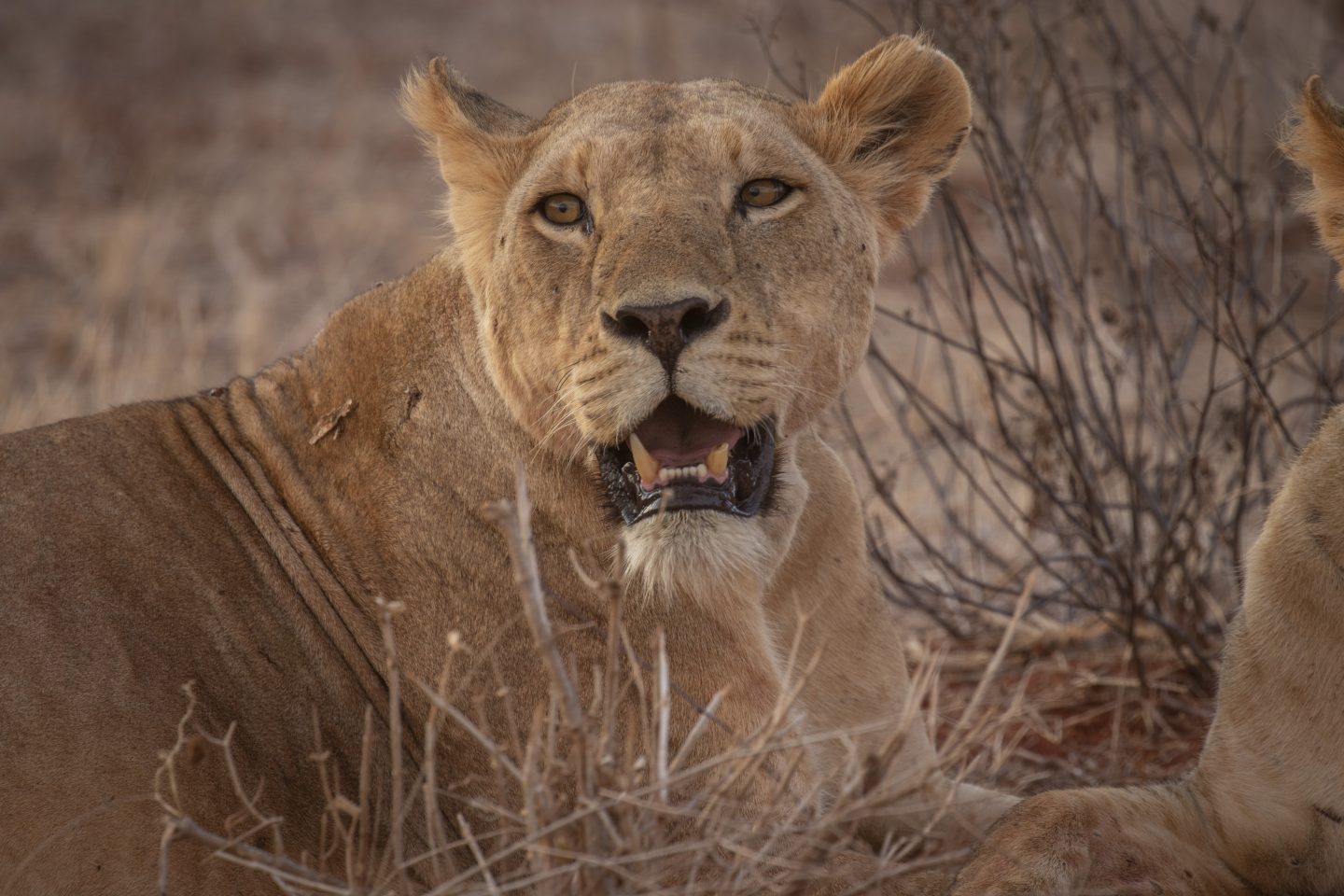
Tusk’s partner, Communities Living Among Wildlife Sustainably – otherwise known as CLAWS Conservancy – recently revealed that over the past 18 months, their known lion population has grown from 45 to 73 individuals in the eastern part of the Okavango delta. According to Dr. Andrew Stein, Founder and Director of CLAWS, this data ‘shows how resilient lion are, given half the chance…’ and attributes the positive increase in numbers to the successful human-wildlife conflict strategies the Conservancy has established.
These strategies include CLAW’s ‘vigorous communication’ with lodges, villagers and government, in which they ‘share stories about the lions’ individual personalities’ and the ‘rich drama’ of their lives. Dr. Stein believes that storytelling is rooted deep within human D.N.A – ‘it speaks to something deep inside of us,’ he says – and as such is a hugely effective way of reducing conflict and promoting co-existence.
CLAWS also encourages local villagers to hold name-giving ceremonies for lion, which help to foster a sense of connection and engagement with the animals. ‘We show the villagers photographs of the lion, they put forward possible names and then vote on a choice,’ says Dr. Stein. ‘We say, ‘They are your lions, they are part of your story and the landscape of your ancestors,’ he says. This encourages pride in lion conservation, together with a sense of ownership. ‘The villagers tell us, ‘We’ve named them, so they are like our children. We need to protect them now.’ says Dr. Stein.
CLAWS has also developed an innovative ‘Automated Lion Alert System’, which allows collared lions to send a ‘personalised’ SMS message to the cell phones of community members if the lion approaches geo-fenced area near villagers’ livestock. The CLAWS lion response team immediately travels to the area where the ALERT was triggered and deploys firecrackers or vuvuzela horns to scare the lion away.
Both innovative lion conservation methods have helped to reduce retaliatory lion killings in the region and create a period of stability, during which male lion hold their territories for longer. This then results in greater cub survivorship, and larger number of cubs growing past their first year. ‘Infanticide is common among lion, with intruding males known to kill a pride’s cubs, so this is a particularly significant development,’ says Dr. Stein.
Tusk is proud to support the work of CLAWS. This success reflects effective habitat management, community conservation a healthy ecosystem and data collection that has improved vastly since the pandemic: all of which support an increase in the lion population.
CLAWS was founded in 2013, after 50% of the known lions died from poisoning and shooting in retaliation for livestock losses across the Kavango-Zambezi Transfrontier Area, northern Botswana.



